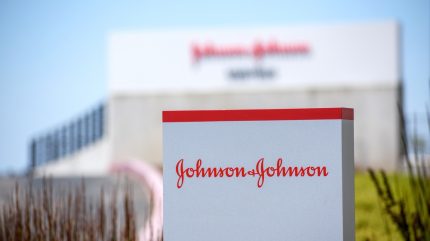
Johnson & Johnson (J&J) has applied to the European Medicines Agency (EMA) to extend the indication of Akeega (niraparib and abiraterone acetate) in prostate cancer.
Akeega has been approved in Europe for the treatment of metastatic castration-resistant prostate cancer (mCRPC) in combination with steroid hormone prednisolone since 2023. J&J is now attempting to widen the drug’s application to patients with metastatic hormone-sensitive prostate cancer (mHSPC).

Discover B2B Marketing That Performs
Combine business intelligence and editorial excellence to reach engaged professionals across 36 leading media platforms.
J&J’s drug is an option for patients where medical or surgical treatment to lower testosterone levels has not worked, and in those who have BRCA 1/2 mutations – a subset of homologous recombination repair (HRR) mutations – in whom chemotherapy is not indicated.
Akeega combines the active ingredients in GSK’s PARP inhibitor Zejula (niraparib) and J&J’s androgen blocker Zytiga (abiraterone). Given as a dual-action tablet, the therapy works by targeting DNA repair and inhibiting androgen production.
J&J gained prostate cancer rights for Zejula from Tesaro in 2016, the latter company was acquired by GSK.
The application comes hot on the heels of positive data for Akeega unveiled at this year’s American Society of Clinical Oncology (ASCO) conference. Akeega reduced the risk of tumour progression or death by 37% compared to J&J’s prostate cancer previous blockbuster Zytiga (abiraterone acetate) in the Phase III AMPLITUDE trial (NCT04497844).

US Tariffs are shifting - will you react or anticipate?
Don’t let policy changes catch you off guard. Stay proactive with real-time data and expert analysis.
By GlobalDataBoth therapies were given alongside prednisolone, with Akeega outperforming Zytiga in other efficacy endpoints within the HRR group. AMPLITUDE is the first study to show the efficacy of combining a PARP inhibitor and androgen receptor pathway inhibitor (ARPi) in this patient population.
“Despite significant progress in prostate cancer, individuals with HRR gene alterations often face limited treatment options, faster onset of symptoms and poorer outcomes,” said Henar Hevia, EMEA therapy area head of oncology at Johnson & Johnson Innovative Medicine.
“With this submission to the EMA, we have the opportunity to offer patients with HRR-mutated mHSPC a treatment specifically targeted to the underlying biology of their disease.”
Zytiga once saw peak annual sales globally of $2.5bn, though revenue has been slashed by the market entry of generics. J&J’s Akeega is forecast to generate revenue of $178m by 2031, according to GlobalData’s Pharma Intelligence Centre.
Most of J&J’s prostate cancer revenue is expected to come from Erleada (apalutamide). The hormone therapy, approved in 2019, is forecast to see annual sales of $5.3bn by 2031.
There is fierce competition in the prostate cancer treatment landscape. AstraZeneca and MSD’s Lynparza (olaparib) has a range of indications in men with prostate cancer who have BRCA1 and BRCA2 mutations.
Another rival, Pfizer’s Talzenna (talazoparib), has the advantage of being approved in combination with Xtandi (enzalutamide), a drug that Pfizer is partnered with Astellas for. The combo therapy is approved for homologous recombination repair (HRR)-mutated mCRPC.




